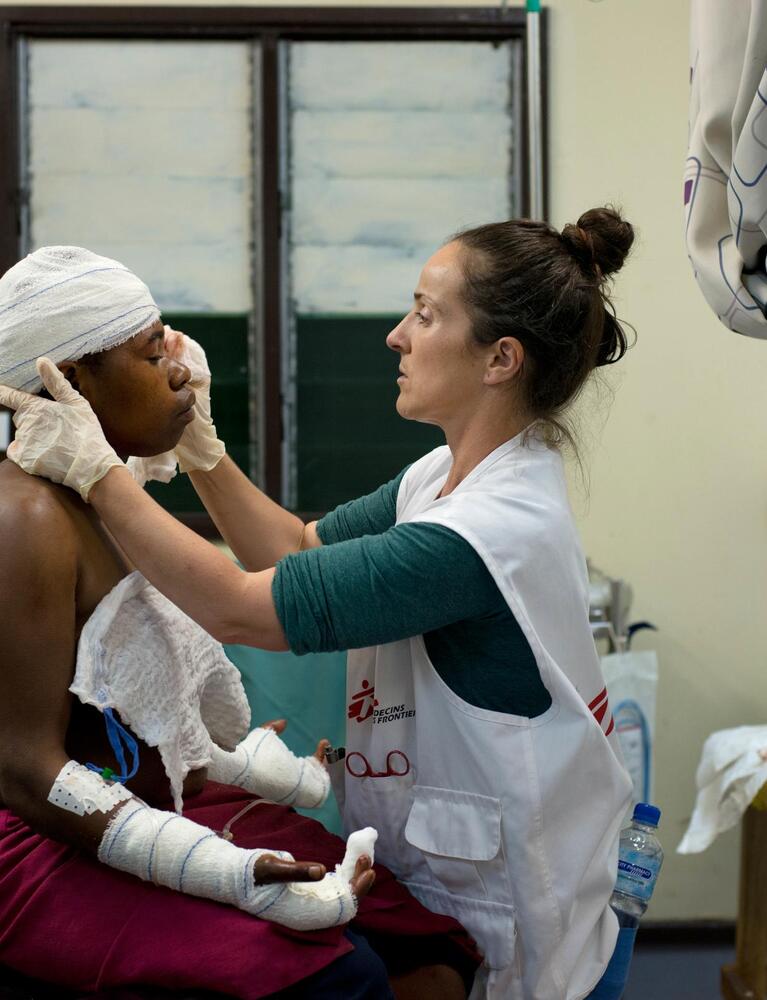With some 836 dialects spoken, around 12 percent of all the world’s languages can be found in Papua New Guinea (PNG).
[[{"fid":"575","view_mode":"default","type":"media","link_text":null,"field_deltas":{},"attributes":{"alt":"Map of MSF's activities in Papua New Guinea, 2015","height":1141,"width":2022,"style":"width: 500px; height: 282px; margin: 5px; float: right;","class":"media-element file-default","data-delta":"1"},"fields":{}}]]North of Australia, the country of more than 6.5 million people is located on the eastern end of the world's second largest island.
Despite its idyllic setting, PNG has some of the worst rates of domestic, sexual and gender-based violence in the world. It also has one of the highest rates of HIV/AIDS in the Pacific region.
Médecins Sans Frontières/Doctors Without Borders (MSF) first worked in PNG in 1992. The country is prone to tidal waves, volcanic eruptions and earthquakes, to which we have responded, as well as the high rates of tuberculosis (TB), HIV/AIDS and sexual violence.
MSF’s work in Papua New Guinea: 2015
MSF started supporting Gerehu hospital in Port Moresby in March 2015, to increase its capacity for screening, diagnosing, treating and following up patients with tuberculosis (TB).
Port Moresby is in National Capital District, where around 25 per cent of the people in the country suffering from TB live. In Gerehu, there are around 1,500 TB patients annually and the number of cases of drug-resistant TB (DR-TB) is increasing. The next step for the project is to set up a dedicated TB unit at Gerehu hospital.
The TB programme that opened in Gulf province in May 2014 was expanded this year, and the MSF team supported not only Kerema general hospital but also outreach activities in two health centres. In total, there were over 2,800 outpatient consultations and 2,347 people with suspected TB were screened.
However, the lack of an effective follow-up system resulted in a high number of patients not completing their treatment – this loss of follow-up is of concern as it increases the incidence of DR-TB. In 2015, 15 DR-TB cases were detected and treated.
In collaboration with the provincial authorities, MSF is developing a decentralised model of care so that people do not need to come to a medical facility so frequently.
Discussions between MSF and the authorities are ongoing to identify the best way to tackle TB in Papua New Guinea.
Treatment for victims of sexual and domestic violence
The Port Moresby Regional Treatment and Training project was handed over to the National Department of Health in 2015, and MSF started the gradual handover of Tari hospital. When this is completed, MSF will cease its activities treating victims of sexual and domestic violence in the country.
While incidents of sexual, family and general violence remain high in Tari and the Highlands region, from April 2016 onwards the provincial health authorities will lead the response to meet the medical and psychological needs of people affected and victims will still have access to vital services.
Find out more in our 2015 International Activity Report




